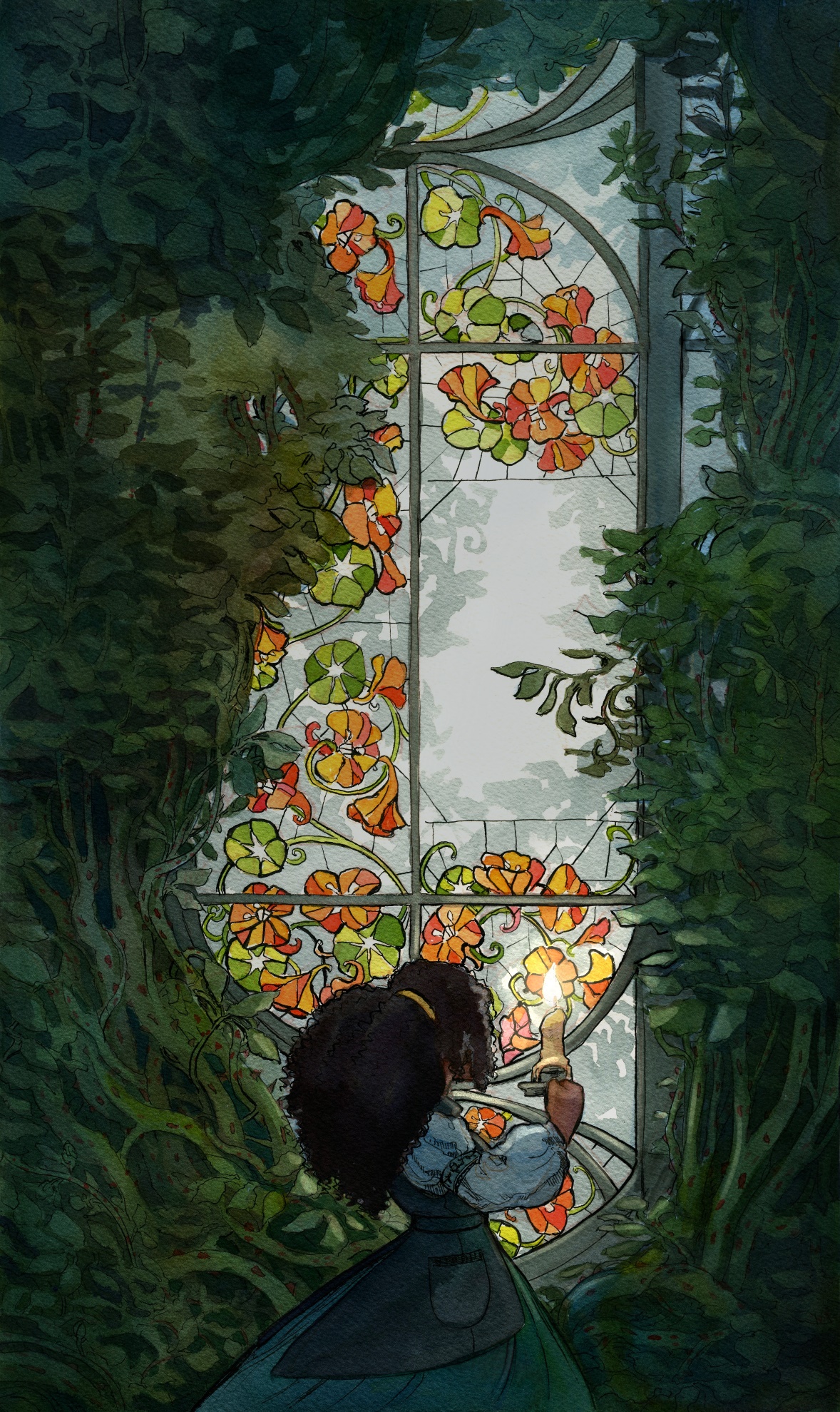Chapter 34:
Six – Green joy
Moth dreamt that night.
Grandpa Clement had thrown himself into the Ofere to find her and had drowned, and she felt she was drowning too, that her clothes were soaked with the water of the sinkhole.
She gasped awake, drenched in sweat. She threw off her covers to get air, and sat on the side of her bed with her hands clutching her knees.
It was well before dawn, with only clouded moonlight to see by. Moth grasped in the dark to find a pitcher of water and drank deeply from it, but she still felt hot. She stumbled to the window, wanting to unlatch it and let in a breeze. When she pulled back the curtains, she saw a creature watching her.
It was the same, long creature as before; white, oval face raised high above the canopy of the woods on a long dark trunk – or neck – and watching the gatehouse. When it saw the flash of Moth moving the curtains, it withdrew back into the woods.
Moth snapped the curtains over the foggy glass and dove back under the blankets, trembling. She thought she should call for Lander, but wondered if she had seen anything at all – and when she drifted off into a doze and woke up two hours later, when the obscured clouded sun was already over the horizon, she felt it had been a dream.
*
